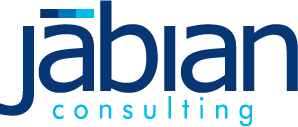Tracy Reznik, M.O.D., Jabian Consulting
On February 18th, I presented a FOCUS Session at the 2016 Academy of Human Resource Development Conference in Jacksonville, Florida on Using Assessment Tools for Leadership Development alongside colleague Rubina Malik, Ph.D., Morehouse College. I am passionate about the use of assessment tools in business settings so I was more than excited and honored to speak at the AHRD conference.
The goal of the session Rubina and I presented was to address maintaining authenticity as it relates to using assessment tools for leadership development and behavior change. Authenticity is a topic becoming more and more prevalent in literature today, and both Rubina and I have written on the topic in various publications over the past couple of years. We defined “authenticity” during the session as “Being True to Yourself” which is congruent with Authentic Leadership Theory. Remaining true to yourself can be hard to do when you receive assessment data (or feedback) that suggests you may need to change your behavior. The question I am really interested in is “How much can leaders change their leadership style and/or behaviors without losing authenticity or being perceived to be inauthentic?”
I believe adapting behavior to certain situations or to specific people generally yields better interactions, and thus, more positive results – certainly the goal in business. However, I also believe there’s a line in the sand that separates one’s behaviors from one’s values, beliefs, and morals. Adapting behavior too much could cross that line; in that case, I do believe compromising your values for better business results does diminish your authenticity. Adapting your behavior by interacting the way your colleague best receives information or adapting your behavior because you’ve learned a new skill does not have to impact your authenticity as a leader. In fact, if you are transparent about why you are changing your leadership style, interacting differently, or learning a new skill, I believe you can increase the level of authenticity you have or are perceived to have.
At the end of the session, we concluded that authenticity, and the perception of it, does not have to be diminished when leaders use assessment data to adapt their behaviors to achieve specific results if they do not compromise their core values. Leadership assessments can widen leaders’ self-awareness to understand their values and motivators fully so they do not compromise their authenticity, or be perceived to be inauthentic, when shifting behavior to achieve better, more positive results.
